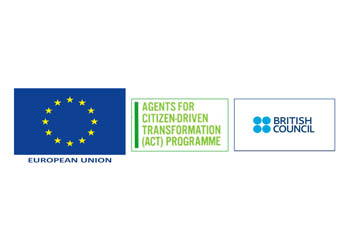CSJ Praised for Meeting CSO Self-Regulation Standards in EU-ACT Programme
CSJ Praised for Meeting CSO Self-Regulation Standards in EU-ACT Programme
-
July 7, 2023
- Posted by: Center for Social Justice

The Centre for Social Justice (CSJ) has received commendation for meeting the self-regulation standards set for civil society organizations (CSOs) under the European Union-funded Agents for Citizen-driven Transformation (EU-ACT) Programme. The EU-ACT Programme aims to empower CSOs to drive sustainable development and promote credible and effective change in Nigeria.
As part of the project, CSJ focused on reducing incidences of Sexual and Gender-Based Violence (SGBV) in the Federal Capital Territory, Abuja, while advocating for increased budgetary allocation to address SGBV issues. The organization’s efforts and achievements in these areas have been recognized as meeting the prescribed self-regulation standards, highlighting CSJ’s commitment to transparency and accountability.
In recent years, the activities of CSOs have faced increased scrutiny, leading to a growing need for common norms and standards within the sector. Recognizing this, CSOs at national, regional, and international levels have collaborated to develop self-regulatory initiatives. These initiatives serve as a means to build public trust, safeguard the political space for CSOs, and facilitate the sharing of good practices and lessons learned.
CSO self-regulation encompasses various forms, including the cooperative effort of organizations to define common norms and standards, the sharing of best practices to enhance programme effectiveness, and occasional external assessments conducted by peer CSOs or watchdogs. In certain cases, the government may delegate power to an umbrella organization or association representing CSOs to regulate behaviour or establish sector-wide standards. Regardless of the specific approach, CSO self-regulation is characterized by voluntary participation and is not fully mandated by government regulation.
CSJ engages in self-regulation across various key areas to promote accountability, transparency, and effectiveness. These areas include governance, financial management, ethical conduct, fundraising and resource mobilization, programme evaluation and impact assessment, stakeholder engagement and participation, transparency and disclosure, advocacy and policy engagement, human resources management, and collaboration and partnerships. In this regard, CSJ has established guidelines and practices within each of these dimensions to ensure responsible and ethical behaviour, robust financial management, meaningful stakeholder engagement, and evidence-based program implementation.
CSJ’s adherence to self-regulation standards within the EU-ACT Programme demonstrates the organization’s commitment to promoting transparency, accountability, and sustainable development. By meeting these standards, CSJ sets a positive example for other CSOs and contributes to the continued growth and effectiveness of the civil society sector in Nigeria.
